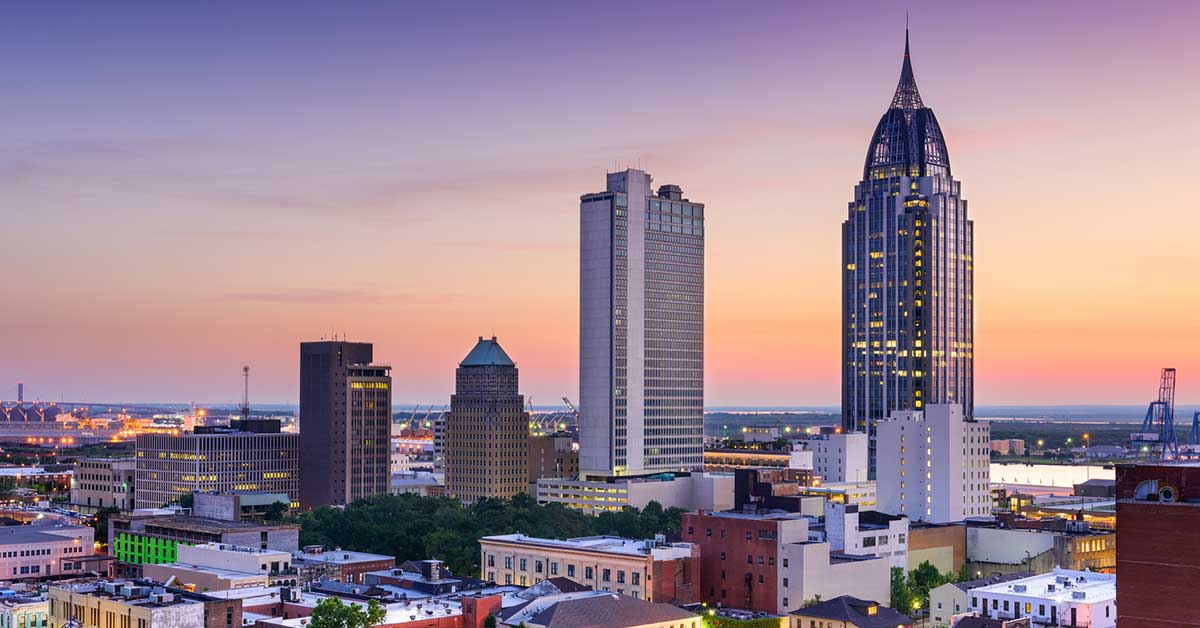
Mobile City Council Rejects Annexation Effort
Imagine what Mobile could do with a sudden influx of millions of dollars in funding; earmarked for public safety, transportation and other community projects that could assist neighborhood youth and also create more affordable housing?
And the city wouldn’t have to create any new taxes or reallocate money from other programs and services to make it happen.
That sounds a little bit like Fantasyland, doesn’t it?
Well, the city didn’t need any magic fairy dust to actually make this a reality. All it needed was about 10,000 new residents before New Year’s Day, 2020.
That wasn’t unrealistic as a grassroots movement of residents who live just across the city line wanted to make it a reality by voting to agree to be annexed into the city of Mobile.
However, Mobile City Council put the kibosh on the idea in November, and for now, the city will stay below 200,000 residents.
A plan to expand the size of the city, pitched by Mayor Sandy Stimpson, failed in the City Council by one vote.
If the vote would have passed, a special election would have convened in December in the proposed areas to be annexed to see if residents there would have been willing to become part of Mobile.
With the groundswell of support that was emanating from those areas, the odds were definitely in favor of annexation.
If that were the case, the Schillinger Corridor, Airport/Snow Corridor and the Kings Branch corridor would have agreed to be annexed by the city, the population would grow beyond 200,000 and Mobile would become the second-largest city in Alabama when the 2020 Census is taken, identifying residencies as of January 1.
A sudden population growth of this kind would have made Mobile eligible for several millions of dollars in public safety and community grant funding.
Of note, Mobile would have garnered a grant between $5-$10 million that would have allowed the city to create a new police precinct on Dauphin Island Parkway, hire 45 new officers and buy 750 new body cameras.
However, only four City Council members voted in favor of this special election (Gina Gregory, Bess Rich, Joel Daves and John Williams).
The remaining three members (Levon Manzie, C.J. Small, Fred Richardson) were opposed.
Manzie, who is president of city council, was considered the swing vote as he had expressed uncertainty in which way he would vote prior to the November council meeting when the vote was taken.
Afterwards, he told AL.com that his decision was made for him by the constituents he represents.
“I’m going to lean on the directives of those who sent me here to Government Plaza,” he said.
Without this overnight population boom, Mobile will still receive federal law enforcement grants. But it will be identical to smaller grants received by cities with only 50,000 residents, or about one-fourth the size of Mobile.
Annexing these areas would have also helped Mobile promote the Port of Mobile as a major hub for businesses, increase the Port in Southeast trade, and assist in the City’s ongoing economic development efforts.
These areas, which are just outside the Mobile city limits, have been growing in recent years, and the city has been providing police services to these areas – which is known as the “Police Jurisdiction.”
The cost to provide these services outside of the city are primarily on the shoulders of residents inside the city.
In other words, the people living in these areas get these services for free while residents of Mobile foot the tax bill.
As tax revenues in the city continue to diminish though, maintaining that kind of service likely will be unsustainable at the current level, meaning future tax increases could be on tap without more federal money.
While Stimpson expressed disappointment in this outcome, he also insisted the fight wasn’t over and that Mobile would continue to find ways to grow. However, the population has stagnated in Mobile, and Huntsville is now the fastest growing city in Alabama. Many projections have Huntsville growing in the coming years to be the second-largest city in the state behind Birmingham, leaving Mobile and Montgomery to battle for third.
This annexation would have been a win/win for both current city residents as well as those residents in the areas that would be annexed.
This isn’t the first time this has been attempted in Mobile. Voters in various towns of West Mobile voted against annexation attempts in July 1992, November 1993, December 2002 and September 2007.
Still, supporters believed that with development in West Mobile neighborhoods and communities and the services now being provided there, that residents would go for annexation because they already feel like they live in Mobile.
Time to Focus on Affordable Housing
Taxes on real estate are not the answer. Sign the petition calling on Congress to address our country’s housing shortage.





